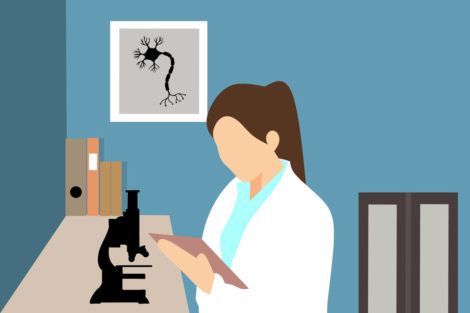For immediate release: Wednesday, October 23, 2019
Boston, MA – Women scientists were 21% less likely to author invited commentaries in medical journals during a five-year period than men with similar scientific expertise, seniority, and publication metrics, according to a new study led by researchers from Harvard T.H. Chan School of Public Health and in collaboration with Elsevier. They found that the disparity was larger for women who were further progressed in their careers, reaching as high as 40% for the most senior authors.
In medical journals, publication of an invited commentary is a recognition of expertise and can raise an author’s profile.
“I was genuinely surprised by the size of the gender gap we found,” said first author Emma Thomas, a doctoral student in the Department of Biostatistics. “As a young female scientist, I hoped that we might achieve gender parity in authorship of invited articles naturally as more women progressed to the top of the scientific pipeline. Our results suggest that may not be the case.”
The study was published online in JAMA Network Open on October 23, 2019.
The researchers analyzed data on all invited commentaries published in English-language medical journals from 2013 through 2017, made available by Elsevier from its Scopus database. The researchers compared the gender of each “case” — authors of invited commentaries — to the gender of a group of “controls” — other researchers who had similar scientific expertise to the case author, identified through text mining of their published abstracts. The final dataset included 43,235 cases across 2,459 journals.
The researchers found that female researchers were approximately 21% less likely than their male peers to publish an invited commentary. The gender disparity was larger for researchers who had been actively publishing for longer. Overall, just 23% of invited commentaries in the dataset had female corresponding authors.
“These findings challenge the common assumption that gender disparities in authorship of prestigious scientific articles exist because there are fewer women with sufficient experience and expertise to write these articles,” said senior author Francesca Dominici, Clarence James Gamble Professor of Biostatistics, Population, and Data Science and co-director of the Harvard Data Science Initiative. “Our results also show that women’s voices are not heard as often as men’s. This lack of diversity in perspectives can hamper the progress of health research, since diversity of thought is a key driver of innovation.”
The authors suggest that journals could expand and diversify their pool of commentary writers by using text mining software to identify researchers with relevant expertise who might not otherwise have been considered.
“Gender Disparities in Invited Commentary Authorship in 2459 Medical Journals,” Emma G. Thomas, Bamini Jayabalasingham, Tom Collins, Jeroen Geertzen, Chinh Bui, Francesca Dominici, JAMA Network Open, October 23, 2019, doi:10.1001/jamanetworkopen.2019.13682
illustration: Mohamed Hassan
Visit the Harvard Chan School website for the latest news, press releases, and multimedia offerings.
For more information:
Chris Sweeney
617.432.8416
csweeney@hsph.harvard.edu
###
Harvard T.H. Chan School of Public Health brings together dedicated experts from many disciplines to educate new generations of global health leaders and produce powerful ideas that improve the lives and health of people everywhere. As a community of leading scientists, educators, and students, we work together to take innovative ideas from the laboratory to people’s lives—not only making scientific breakthroughs, but also working to change individual behaviors, public policies, and health care practices. Each year, more than 400 faculty members at Harvard Chan School teach 1,000-plus full-time students from around the world and train thousands more through online and executive education courses. Founded in 1913 as the Harvard-MIT School of Health Officers, the School is recognized as America’s oldest professional training program in public health.
